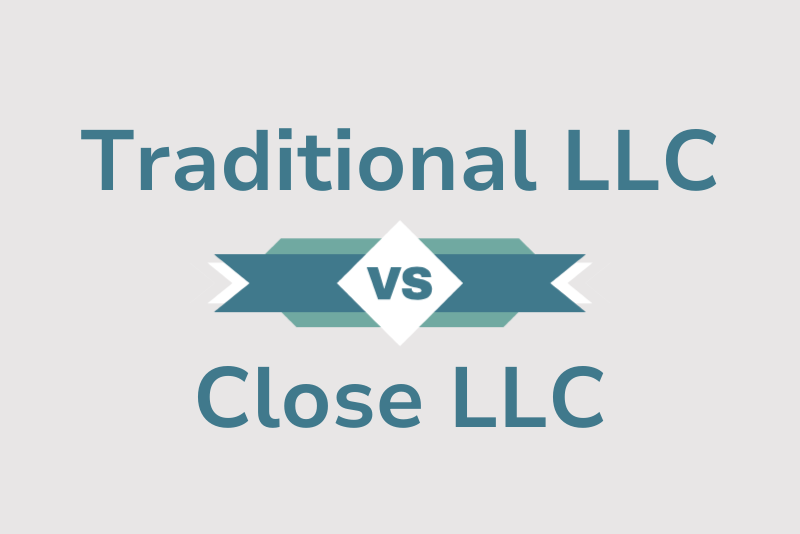The Launch Blog: Expert Advice from the CorpNet Team
The Advantages and Disadvantages of a Subchapter S Corporation
Before the advent of the S Corporation in 1958, entrepreneurs had two options for forming a business entity. They could form a Partnership or a C Corporation, but neither of those business structures fulfilled the needs of many people seeking to start their own businesses. To help encourage small businesses in America, Congress and President Eisenhower created the Subchapter S Corporation. Whether you're a business owner or a professional service provider that gives entrepreneurs legal or tax advice, you'll want to understand what a Subchapter S Corporation is and who can benefit from it....
S Corporation Election Considerations for Corporations and LLCs
Have you been thinking about whether your business might benefit from being an S Corporation? I presented a webinar for accounting professionals about the S Corporation election not too long ago. Within that presentation, I covered information of value to entrepreneurs in all fields. In this article, I will share that insight with you in hopes that it will help you gain a deeper understanding of what it means to be an S Corporation. What Is an S Corporation? The S Corporation is not a business structure in itself. Rather, it is a special federal income tax election option for eligible...
How to Start a Daycare Business
Daycare businesses provide a critical service to working families. Parents and guardians need reliable, responsible childcare services to ensure that their children are well taken care of while adults in the household work hard to earn a living. Before starting a daycare, I recommend that you seek resources—such as an attorney, tax advisor, accountant, and business consultant—who can help with your legal, accounting, and industry-specific questions and decisions. In the meantime, I've created this step-by-step guide that provides key considerations and action steps for starting your own...
State of Colorado Periodic Report
All Corporations, Limited Liability Companies (LLCs), Non-Profit Corporations, and foreign entities registered to conduct business in the State of Colorado must file a periodic report each year with the Colorado Secretary of State’s Business Division. The intent of the report, which in some states is called an annual report, is to make sure the state and members of the public have the most up-to-date information about every reporting company that conducts business in Colorado. Filing the report is not difficult, but you must pay close attention to guidelines, as not doing so could result...
Delaware LLC Franchise Tax
Delaware is known as a business-friendly state for such reasons including its lack of residency requirements, favorable tax structures, legal flexibility, privacy protections, and other advantages. A less friendly aspect of having your LLC based in Delaware is its franchise tax, which is a fee that owners of Limited Liability Companies (LLCs) and some other types of business entities must pay each year for the privilege of having their companies located in the state. Even if you formed your LLC in Delaware to take advantage of its business-friendly reputation but conduct all your business...
FinCEN Announces that BOI Reporting Is Voluntary (For Now Anyway)
If you’re feeling a bit of whiplash from the wild ride that is the federal court activity related to the Corporate Transparency Act’s Beneficial Ownership Information Reporting (BOIR) Rule, we understand! Just days after FinCEN announced on December 23, 2024 that an injunction temporarily suspending mandatory BOIR was lifted and reporting companies again must file their reports by the required deadline (which was extended to January 13, 2025, for existing entities), things took a sharp turn. On December 26, 2024, a panel of the same U.S. Court of Appeals for the Fifth Circuit that...
The S Corporation Election Deadline is Right Around the Corner
The S Corporation election deadline for LLCs and C Corporations is March 17, 2025. So, if you’re considering changing your limited liability company or C Corporation tax treatment from its default status to an S Corporation, time is of the essence! To be considered an S Corporation for tax purposes in 2025, existing LLCs and C Corporations must file their election within two months and 15 days (within 75 days total) after the start of their 2025 tax year. For example, a company with a tax year that began on January 1, 2025, must file IRS form 2553 no later than March 17, 2025....
Can a Single-Member LLC Add Members?
If you’re wondering if you can bring additional members into your single-member LLC, the answer if yes. There are steps you can take to add members, at which point your business would become a multi-member LLC. There’s more to that question than you might think, however, so I’d like to take some time to walk you through the ins and outs of increasing membership in your Limited Liability Company. Let’s start by reviewing what occurred when you formed your business, and then we’ll look at some pros and cons of adding one or more members. Single-Member LLC Refresher A single-member LLC is a...
Year End Small Business Tax Tips to Reduce Tax Payments in 2025
Before you let the hustle and bustle of the holiday season take over your business (and your life), now’s a good time to review your financial situation and explore some money-saving small business tax tips. Below is a list of my top tax tips entrepreneurs can still benefit from at year-end. 1. Deduct Startup Expenses Did you start your business this year? You may be able to claim some of your startup expenses on your tax return in the year you actually opened the business. To qualify as a startup expense (a capital cost), the IRS requires the expense to meet two requirements: The expense...
Federal Court of Appeals Reinstates Enforcement of BOI Reporting Requirement
Throughout the year, we have provided several updates about the 2024 Beneficial Ownership Information Reporting mandate. Recently, there’s another development you should be aware of. The temporary suspension of the BOI reporting rule has been lifted, and reporting companies are once again required to file BOI reports. On December 23, 2024, the federal Court of Appeals decided to end the preliminary injunction (effective December 3) that suspended the U.S. Treasury Department and FinCEN from enforcing the Corporate Transparency Act (CTA) and its BOI reporting requirements. This means...
How to Remove a Member from an LLC
Some limited liability companies undergo ownership changes as their businesses evolve. Members may come or go — either voluntarily or involuntarily — for a variety of reasons. So how do you remove a member of an LLC? Well, that depends! Different circumstances can affect the process and the outcomes for what happens to a member’s ownership interests in the company. Whether an LLC’s members want one of their members gone, a member wants to withdraw voluntarily, or a member passes away, the company must carry out the process lawfully. Ideally, an LLC’s organizational documents or LLC...
Should You Incorporate at Year End or Wait Until 2025?
If you’re gearing up to incorporate and get your business off the ground at the start of 2025, you might wonder when to file your business formation paperwork. Can you submit your incorporation forms now and request an effective date that is delayed? After all, the end of December tends to be ultra-busy. Trying to complete all the forms and manage all the details amid that chaos will only compound the stress. Choosing the right business entity type for your business is a critical decision, and so is determining when to file your forms with the state. In this article, I’ll give you...
When to Incorporate a Startup
If you’ve been operating your business as a Sole Proprietorship, you may be wondering when’s the right time to incorporate your startup as a bona fide business entity. There are various reasons to consider incorporation and its important to know your timing can matter! Five Signs It's Time to Incorporate Naturally, every company’s situation is different, so various factors play a role in determining the ideal time to register a business entity. Circumstances when forming an LLC or Corporation may be advantageous for a startup include the following items. 1. Conducting Business Activities...
What Business Owners Need to Know About Filing Taxes in 2025
The new year is right around the corner, which means businesses across the United States need to start thinking about filing taxes for 2024 It’s time to determine deadlines and research any legislative and tax code changes that may affect you and your company. For guidance in preparing your 2024 tax return, I encourage you to talk with a professional tax expert. In the meantime, here’s a quick overview of what business owners should consider when filing their taxes in 2025 Sole Proprietorship Taxes Sole Proprietorships are unincorporated businesses with no distinction between the business...
What is a Commercial Registered Agent?
Choosing a commercial registered agent provides advantages that can significantly benefit your business and help make sure your company remains in compliance with all laws and regulations. If you have a Corporation, Limited Liability Company (LLC), Limited Partnership, Limited Liability Partnership (LLP), or other business that’s registered with the state, you’re required to have a registered agent in that state. If your company conducts business in states other than the one in which it was originally registered, you’ll need to have a registered agent in each of those states, as well. The...
Court Rules to Temporarily Suspend Enforcement of BOI Reporting Requirement
Throughout the year, we have provided several updates about the 2024 Beneficial Ownership Information Reporting mandate. Recently, there’s another development you should be aware of. If you haven’t already submitted your BOI report to FinCEN, you’ll want to carefully consider the announcement and its potential impact. On December 3, 2024, the U.S. District Court for the Eastern District of Texas issued a nationwide preliminary injunction, suspending the U.S. Treasury Department and FinCEN from enforcing the Corporate Transparency Act (CTA) and its BOI reporting requirements. This court...
What is a Franchise Tax?
A franchise tax is a fee that some states charge businesses for the right to conduct business within the state. Less than half of all U.S. states levy a franchise tax on businesses like C Corporations and Limited Liability Companies. States that do impose this "privilege tax" have different rates and rules pertaining to it. Some states exempt certain types of businesses, such as nonprofits from having to pay the tax. And some companies operating within a certain industry that’s considered beneficial, such as renewable energy, may also be exempt. Also, businesses that are not registered...
How to Keep Your LLC Compliant
Running a business and staying up to date with LLC compliance can be a bit overwhelming for many entrepreneurs. There are a lot legal requirements at the federal, state, and local level to track and take action on throughout the year. And to make matters worse, the requirements can vary depending on where the company is located, the industry, its business activities, whether it has employees, and other factors. As we venture into the last few weeks of the year, I'd like to provide a recap of the primary LLC compliance items you need to be aware of, and most likely, take action on before...
How to Record the Buyout of a Partner
Sometimes business partnerships just don’t work out. Whether it’s due to disagreements or because one partner wants to pursue other opportunities, it’s essential to know what your options are when it’s time to split up a partnership. One common scenario is when one partner wants out, but the other partner (or partners) wants to continue the business. In that case, a partner buyout is a likely solution. Knowing the proper way to buy out a business partner will save you time, money, and a lot of hassle in the future. Here’s what you should know about a partner buyout. The Importance of a...
Expanding a Small Business to Another State: What You Need to Know
Extending your small business’s presence across state lines can help your company reach new markets, grow revenue, and boost profits. But how do you expand a small business into another state? And what’s involved in operating a business in multiple states? There are some filing requirements to operate in other states legally and tax-related considerations that need attention. Of course, none of that should be taken lightly, so entrepreneurs should research the requirements of the state(s) where they want to conduct business. It’s also beneficial to consult an attorney and tax advisor or...
What You Need to Know About Collecting Sales Tax
Before a retailer or service provider can open for business, they first must get approval from the state for sales tax registration. Not all states charge sales tax, and not all products and services are taxable, so it’s essential to learn the facts before you find yourself in compliance hot water. Here’s what to know about your business’s responsibilities regarding the collection of sales taxes. Sales Tax Vary by State and Sometimes by County Currently, forty-five states and the District of Columbia collect statewide sales taxes, while five states do not have a statewide sales tax. The...
LLC Dissolution vs. Termination
Businesses open and close all the time. The U.S. Small Business Administration reports that between March 2021 and March 2022 about 1.2 million small businesses opened and approximately 834,000 closed. If you’re faced with closing your Limited Liability Company (LLC), there are steps you’ll need to take to make sure it’s done legally. Failing to do so can cost you money and result in negative consequences down the road. While the words dissolution and termination are often used interchangeably when referring to closing an a business, they have different legal meanings and refer to two...
How to Change Your Business Entity
It’s not unusual for an entrepreneur to change their business from one entity type to another. Most often, someone who’s been running a Sole Proprietorship or General Partnership sees a need to register their business with the state and become either a Limited Liability Company (LLC) or a Corporation. This could occur because owners wish to lower their risk for personal liability if the business is sued or can’t pay its debts. Tax considerations are another reason for changing a business structure, as is an increased ability to attract investors and raise capital for the business. Or...
Incorporate Before Year End to Avoid Issues at the Secretary of State
Think you’re the only business owner who wants to incorporate or form an LLC before the end of the year with your Secretary of State? Think again. Registering a business at the end of a calendar year can take longer than any other time of the year. Because everyone waits until the end of the year to change their business structure for the New Year, there's a lot of competition. What might normally take just a few weeks to get approved can take a lot longer. Waiting until December to register your business with the Secretary of State could mean your application gets backed up into February...
Maintain Business Compliance to End the Year in Good Standing
As we move into the fall and winter months it's time to begin thinking of year-end compliance responsibilities and business activities. We'd like to help you prepare for the year-end and we want to help you get all your legal ducks in a row. To assist in these efforts, we’ve put together a year-end compliance checklist to set you on the right path. And to make the entire year-end compliance process as easy as possible, we've also created an annual compliance checklist you can download in a PDF (see below). File Your Annual Corporate Documentation Most states require registered C...
What Is a Domestic LLC?
If you registered your Limited Liability Company in the state where you live and you are conducting most of your business in this state, your company is known as a Domestic LLC. It is licensed by the state to do business there and expected to uphold all the laws and regulations imposed by the state. While the definition of a Domestic LLC is straightforward, it’s important to understand there are variations on this type of business structure, such as a single-member or multi-member LLC or a member-managed or manager-managed LLC. And, depending on its purpose and how it’s registered, a...
BOI Filing Requirements: What Is Needed?
Companies required to file a Beneficial Ownership Information report (ROIR) under the Corporate Transparency Act must share information with FinCEN about their reporting company, beneficial owners, and company applicants. If you're filing the BOI report yourself, the process can feel a little confusing. As you progress through the form fields, you can't help but notice you are inputting the same data over and over again. In reality, you are, but the reason for this is you are answering questions on various parties involved and information can overlap. What details must be included in the...
Do I Need a Certificate of Good Standing for My LLC?
If you want to open a business bank account for your Limited Liability Company (LLC), apply for a loan or a line of credit, or conduct certain other types of business, you’ll probably need a Certificate of Good Standing, also known in some states as a Certificate of Status, Certificate of Authorization, Certificate of Existence, or Certificate of Subsistence. A Certificate of Good Standing is a document issued by the state to companies in compliance with all applicable rules and regulations. The document typically includes the name or entity number of the business to which it’s issued,...
Traditional LLC vs. Close LLC
A Close LLC and a traditional LLC are essentially the same regarding how they’re formed, the personal liability protection they provide to business owners, and the tax flexibility they provide. A traditional LLC and a Close LLC have the following similarities: Both Close LLCs and LLCs are created by filing a formation document called articles of organization (or certificate of organization) with the state. Both Close LLCs and LLCs limit the LLC members’ personal legal responsibility for the liabilities of their business. Both Close LLCs and LLCs may choose one of the following tax...
Is the Beneficial Owner Information Report a One-Time or Recurring Filing?
Reporting companies must file a Beneficial Ownership Information report with the Financial Crimes Enforcement Network (FinCEN). The BOI report is considered a one-time filing. If a business entity’s initial BOI report is accurate and no information filed in the report changes, the company does not have to submit any subsequent reports. When Is an Initial BOI Report Due and How You File One The BOI reporting deadlines depend on when a reporting company was created or registered: Business formed before January 1, 2024 – The initial BOI report is due by January 1, 2025. Business formed...



























